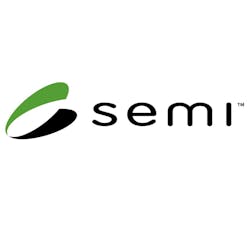SEMI supports U.S.-Japan trade agreement negotiations in U.S. government testimony
“Continued access to the Japanese market will remain critical for the semiconductor industry and the countless industries that rely on devices enabled by chips,” said Ajit Manocha, president and CEO of SEMI. “A bilateral trade agreement will lead to greater innovation and stronger growth while supporting more high-skill, high-wage jobs.”Jay Chittooran, public policy manager at SEMI, testified to the Trade Policy Staff Committee that global commerce underpins the global semiconductor industry, which enables the $2 trillion electronics market. Chittooran noted that semiconductor equipment trade between the U.S. and Japan exceeded $7.6 billion in 2017, or one-fifth of all U.S. trade in this segment, highlighting the vital importance of Japan to the global semiconductor industry.
A U.S.-Japan trade agreement would reduce tariffs on products used in the semiconductor industry, helping to reduce costs and boost productivity, and enhance global trade rules that promote fair competition and innovation.
Chittooran’s comments were based on SEMI’s “10 Principles for the Global Semiconductor Supply Chain in Modern Trade Agreements.” The principles support the removal of tariffs on semiconductors and other technology products as well as related trade barriers. They also call for rules that mandate the free flow of cross-border data. Chittooran also stressed that any modern trade agreements must set high standards that include strong protections against intellectual property (IP) theft and criminal penalties for trade secrets violations.
According to Trade Promotion Authority (TPA), the U.S. law that guides trade votes in Congress, formal negotiations with Japan can begin no sooner than 90 days after the official notification that the Trump administration issued on October 16. Based on that timetable, talks can begin January 14, 2019, at the earliest.
“Semiconductor companies in Japan will buy more than $16 billion worth of materials and equipment next year,” Manocha said. “We look forward to working with all stakeholders to ensure that the U.S.-Japan trade agreement will serve as the model agreement for global trade rules and enter into force quickly.”


